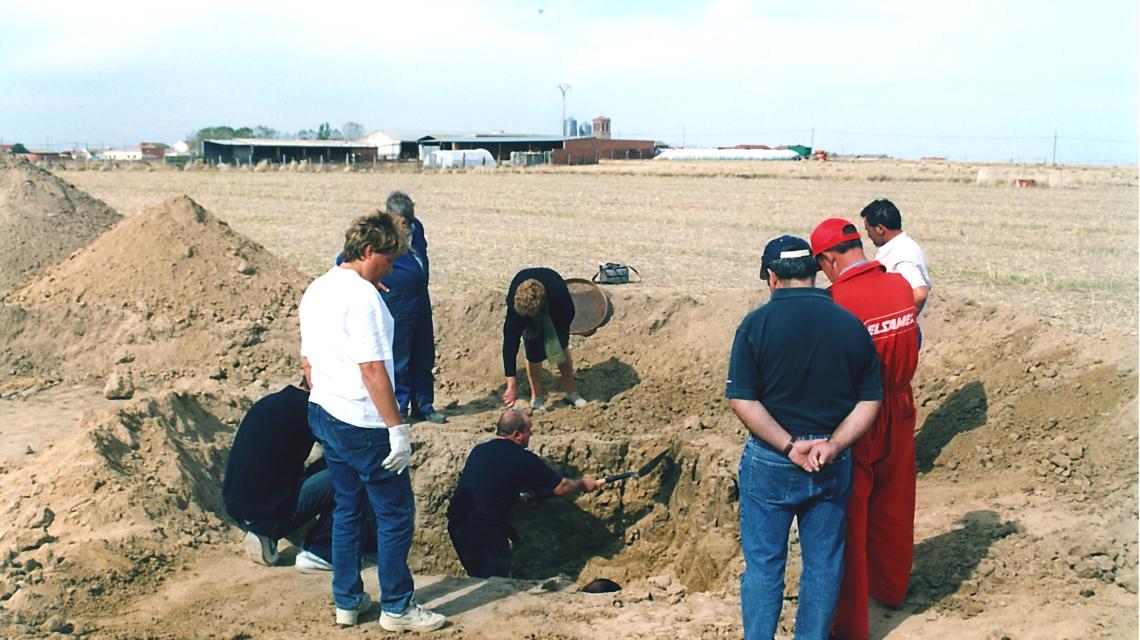
The exhumation in the year 2000 of a mass grave in Priaranza del Bierzo (León) containing the bodies of thirteen Republican civilians executed during the war by Francoist paramilitaries set in motion a process which, twenty years later, has led to the recovery of more than 10,000 mortal remains in some 800 irregular graves all over Spain left by the repression inflicted on the civil population by rebel troops in the war and postwar period. It was not long before a connection was made between this process and the Valley.
In 2003, Fausto Canales became a driving force in the exhumation of the common grave of his father and six local inhabitants from Pajares de Adaja in Aldeaseca (Ávila), all members of the Casa del Pueblo, the local Socialist party office, executed by Falangists in 1936. After locating the grave, the archaeologists realised it that had already been excavated and only a few odd bones and personal items had been left behind. The remains had been taken to a common vault in the cemetery of Pajares de Adaja. However, subsequent investigation led Canales to an exhumation document issued in 1959 for the transfer of these bodies to the Valley of the Fallen.
The discovery that the contents of Republican graves had been transferred to the Valley’s crypts without the families’ permission or even knowledge brought the monument under the scrutiny of the memorial movement. For almost two decades, Canales has been trying to retrieve the remains of his father and his grave companions from the Valley, denouncing the situation both in the media and in the courts, and pursuing his right to decide on their place of burial before different authorities.
Other relatives of Republicans in the same situation have been adding to these claims over the years. Particularly relevant are the activities of Asociación de Familiares Pro-Exhumación de los Republicanos del Valle, which specializes in handling lawsuits and supporting plaintiffs. Highlights of the lengthy and complex process include the 2016 ruling authorizing the retrieval from the crypts of brothers Manuel and Antonio Ramiro Lapeña Altabás, residents of Villarroya de la Sierra (Zaragoza) murdered by Francoist agents in 1936 in Calatayud, and recognition of the right to exhume finally accorded at the end of 2020 by the heritage management authority Patrimonio Nacional to almost a hundred petitioners in similar circumstances.